 The following is a guest post from Frank Belzer, a sales development expert and Senior Sales Strategist and VP of Corporate Training at Kurlan and Associates. Frank is a regular contributor to the sales and sales management training curriculum at Kurlan and Associates and is the host of the weekly Internet Radio Show, Sales Talk Live.
The following is a guest post from Frank Belzer, a sales development expert and Senior Sales Strategist and VP of Corporate Training at Kurlan and Associates. Frank is a regular contributor to the sales and sales management training curriculum at Kurlan and Associates and is the host of the weekly Internet Radio Show, Sales Talk Live.
As a sales development expert and as someone who has worked with almost 300 marketing agencies I hear the complaints from both sides – sales people claim that the leads are no good, it’s the wrong contact, they aren’t really interested or any number of other excuses or fabrications. I also hear from the marketing people, and they describe the sales force that is lazy, lacking in knowledge, lacking and expertise were demotivated.
Having spent a lot of time trying to understand both sides I have determined that most of the blame falls squarely on the shoulders of the sales people. I come to that conclusion based on the fact that our analysis of sales organizations over the past 25 years has proven that less than 25% of all sales people have the skills required to be consultative in their approach to selling. The act of following up on any type of inbound lead, and moving it to the sales pipeline from the top of the funnel (TOFU) to the bottom of the funnel (BOFU) requires that salespeople be consultative – especially in the middle of the funnel (MOFU) There is no middle ground. The salesperson of today cannot successfully push an inbound prospect through the funnel. Coercion or tricking words might have worked 25 years ago but they won’t work with today’s savvy prospects!
The second reason for my conclusion is this: at least once a week I find myself in front of 20 to 50 salespeople conducting a sales training kickoff. As part of my sales training I spent time talking about the importance of social media, inbound marketing in how salespeople could be using these tools to develop relationships with prospects, learn about their existing opportunities and even uncover new opportunities. Inevitably as I am having this discussion it becomes clear that 90% of the sales people in the room don’t know how to use LinkedIn, don’t believe that Twitter has any value and are totally out of touch with the whole concept of inbound marketing! Is it any wonder that they are disappointed with the quality of the leads you provide? They don’t even understand the process and have not taken the time to learn.
So my experience first-hand, and the results of our data having analyzed hundreds of thousands of sales teams provide the basis for my conclusion that most of the blame for not closing the loop falls squarely on your sales organization.
I know this statement is going to cause some pushback from the sales side of the house. Unfortunately, that is how salespeople, as a rule deal with everything. They push back and refuse to take the blame and accept the responsibility. But to everyone reading this I have to say, I’m a salesperson, I make sales calls, I work with salespeople, I’m a proven performer when it comes to selling and as one of you I’m calling you all out. Stop making excuses when it comes to the lack of conversion or the lack of results – it’s not the leads!
Here are some questions to ask yourself if you are a sales person or questions to ask your sales team:
- What kind of performance does your track record demonstrate when it comes to traditional sales? If you were not a super achiever in traditional sales what makes you think that when selling to inbound leads are going to be a super achiever? Chances are you suck at both.
- How involved are you in the inbound process? Do you blog? Do you Tweet? Do you use LinkedIn and social media? If you don’t understand these tools then you don’t understand the way a prospect would find you. One of the first rules of sales has to do with understanding and communicating effectively with prospects - how can you do that if you don’t live in and understand their space?
- What are your expectations when it comes to an inbound lead? If you anticipate just making a phone call or sending a lazy email rather than being creative and imaginative, if you don’t plan on developing a relationship by helping the prospect with questions and adding value and instead you expect the person to lay down and say yes; your expectation I believe is the problem. A lead is still a lead!
- What is your approach when reaching out to and inbound lead? Are you treating that lead the same way you treat a traditional lead? Are you following up much in the same way he would follow up to a chamber event or from a phone blitz? If you are, once again you are the problem. Inbound leads need to be followed up with differently
- How do you sound? How do you appear? How do you come across? The inbound buyer is more informed, more astute and they are extremely turned off by someone who resembles the classic used car or manipulative salesperson. If you sound look or smell that way you will not succeed regardless of how great the leads are.
I know this post has been pretty tough on salespeople, and I feel that as one I have the freedom to speak in such a way and to be more critical than perhaps others can be. I realize that most the people reading this blog are on the marketing side of the house and I write it so that they can understand that much of the pushback they get from the sales force is inappropriate. As inbound marketers I’m sure you would like to close the loop on almost every lead I’m sure your salespeople are very adept at convincing you that the leads are the problem. When was the last time you salesperson came in and said to you “the leads are great but I’m a lousy salesperson?” That’s is never going to happen.
My message to inbound marketers is this: don’t take excuses from your salespeople. Pressure salespeople to adapt to the changing market just like you had to adapt. If your salespeople are not socially active in working towards being digital natives then make them do that. Rather than distribute your leads evenly give the majority of your leads to the people that understand and believe in the power of inbound marketing.
Stay tuned for my new book on this topic; Sales Shift – how inbound marketing turned sales upside down making it more difficult and more lucrative at the same time, will be released around November first. In the mean time you might enjoy my e-book on inbound lead conversion and you go here to download that here for free.




